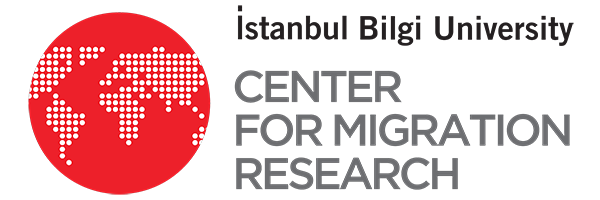Seminar "The Politics of Migration in the 21st Century: Employing Systemism to Advance Research Strategies"
24 October 2024, Thursday
12.00-13.00
Istanbul Bilgi University
santralistanbul Campus, E5-103
The Politics of Migration in the 21st Century
Employing Systemism to Advance Research Strategies
Prof. Jeannette Money, University of California, Davis
Abstract
The seminar introduces systemism as a method of evaluating the expanding research agenda on the politics of migration. Systemism is a graphic method for presenting academic research concisely. Prof. Jeannette Money employs these methods to follow the evolution of research on states’ migration policies from the 1990s to the 2020s, providing a critique of the research and suggesting methods for advancing the knowledge of this politically important policy issue. She provides a short overview of systemism and then presents two articles in graphic form, “No Vacancy. The Political Geography of Immigration Control in Advanced, Market Economy Countries” by Jeannette Money (1997) and “The Migration State in the Global South: Nationalizing, Developmental, and Neoliberal Models of Migration Management” authored by Fiona Adamson and Gerasimos Tsourapas (2020). Elaboration is employed to expand the systemist presentation of “No Vacancy” to communicate causal mechanisms more thoroughly. Prof. Money adopts a strategy of systematic synthesis to bring together the two articles and to engage the research agenda on the politics of migration policy. The past 30 years have witnessed an expanded definition of migration management strategies that the four-fold typology proposed by Adamson and Tsourapas captures. However, continuing attention to the domestic politics of migration management would help illuminate variation among states within each category. Both articles acknowledge structural factors that constrain or provide opportunities for states’ migration policy choices but neither develops a clear picture of the systemic factors that shape international mobility and the policy choices of states in the international system. The conclusions point to a continuing expansion of the research agenda along these three dimensions.
Biographical note
Jeannette Money is a professor of Political Science at the University of California, Davis, and ISA/ENMISA Distinguished Scholar 2024, whose work focuses on international migration, interstate cooperation, and citizenship. In Fences and Neighbors: The Political Geography of Immigration Control (Cornell University Press, 1999), she presents a theory of local political dynamics of immigration as a determinant of national immigration policy. In Migration, Nation States, and International Cooperation (Routledge, 2011), the focus is on regional cooperation on immigration issues. In Migration Crises and the Structure of International Cooperation (University of Georgia Press, 2019), co-authored with Sarah Lockhart, she presents the conditions under which international cooperation is likely, with bilateral cooperation the most prominent type of cooperation present in the international system in the contemporary era. Other research interests include migrant rights, migrant political participation, and migrants’ citizenship choices. She, along with co-editor Sarah Lockhart, has developed a textbook introducing university students to the dynamics of international migration and the important policy issues that arise. At UC Davis, she innovated a community engaged learning program that allows students to develop an expertise in international migration and integration while working in community organizations. This is complemented by community engaged research for government agencies.
Notice: Participants to enter the santralistanbul Campus should use the Visitors' Gate (Ziyaretçi Girişi) located at the end of the parking lot.
